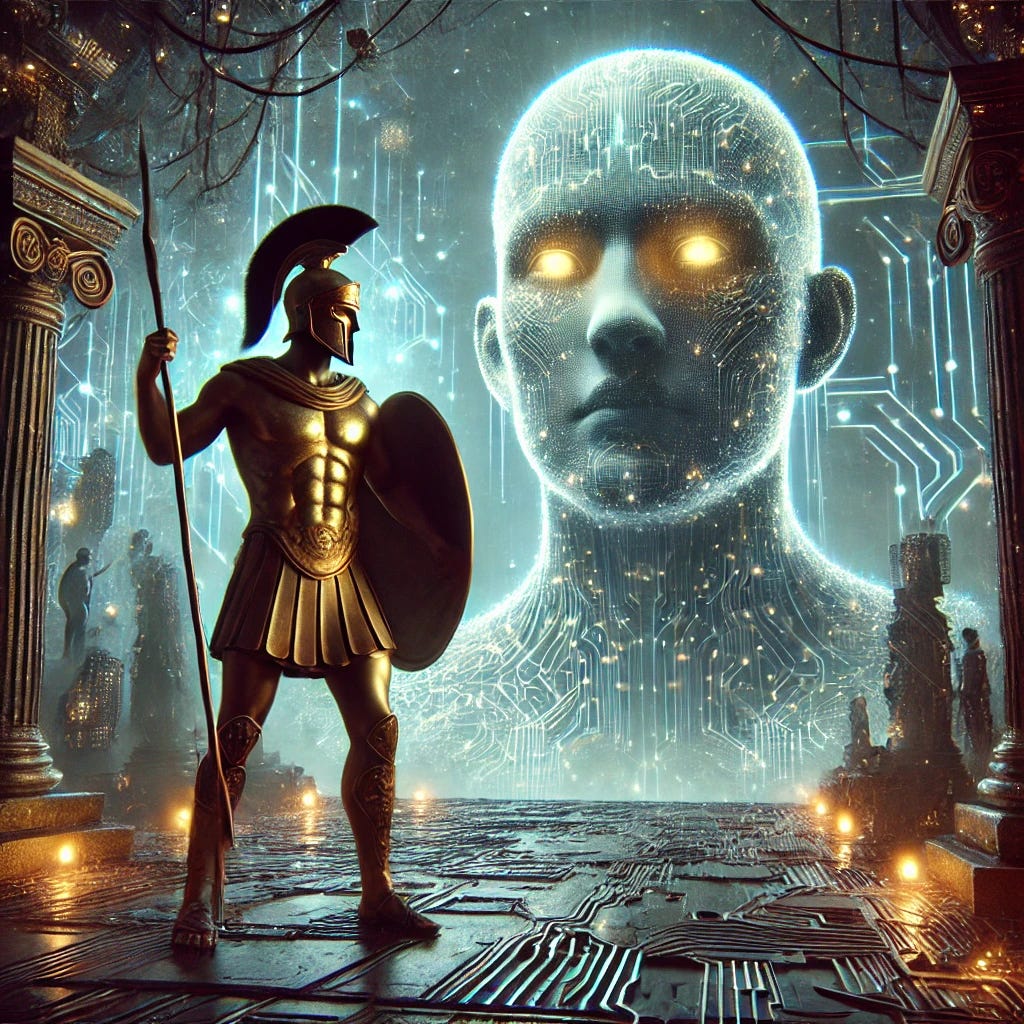Hi everyone,
As promised here’s a draft of chapter 1 of my online book, The Return: AI, Progress, and the Illusion of the Future. For the chapter, we’re covering how our understanding of time, history, and progress has shifted—from the ancient world’s cyclical view to the modern belief in exponential technological advancement. We’ll trace how the Greeks, early Christians, and Enlightenment thinkers shaped our notions of progress, how Silicon Valley embraced an almost eschatological faith in AI and acceleration, and why Vico’s idea of the ricorso (the great return) offers a timely alternative to our techno-utopian narratives.
After the draft, I’ll break down my approach to writing this chapter with ChatGPT—how I use it, what works, and what doesn’t. Whether you’re writing about AI, history, or something entirely different, I hope these insights will be useful for your own projects.
Let’s dive in.
Vico’s World and the Question of Progress
“Those who cannot remember the past are condemned to repeat it.” —George Santayana
The Ancient View: Time as a Cycle
For much of human history, progress wasn’t something people believed in. If anything, they feared change. Ancient civilizations saw time as cyclical, a series of grand rises and inevitable declines. The world was a wheel, ever-turning—just as predictable as the flooding of the Nile or the changing of the seasons.
The Greeks formalized this view. Hesiod, Plato, and Aristotle all spoke of civilizations reaching a “golden age,” only to fall into decline as human virtues eroded and societies grew decadent, corrupt, and complacent. Collapse was always followed by rebirth. The idea that history moved in a straight line, ever upward, was foreign to the ancients. Civilization was thought to grow, reach maturity, and then enter decline only to eventually perish like life on earth. The cyclical nature of life wasn’t something to overcome but something to understand.
Plato, writing in Timaeus, describes an advanced civilization—Atlantis—falling into ruin and vanishing beneath the sea. To modern readers, the story of Atlantis is often treated as a mythical lost city, but for Plato, it was simply an example of history’s natural rhythm. Cities rose, flourished, and crumbled. Empires expanded, reached their zenith, then collapsed under their own weight. This was not tragedy; it was nature.
The difference between the ancient cyclical view of history and the modern belief in linear progress is best illustrated by how each civilization conceived of time itself.
The Arrow vs. The Wheel
We moderns imagine time as an arrow, always moving forward, always pushing into the unknown. On this view, the future is ahead of us, and we are constantly trying to “catch up” to it. We talk about “progress” as if it were a physical destination—something we can reach if we move fast enough.
Keep reading with a 7-day free trial
Subscribe to The AI Author's Playbook to keep reading this post and get 7 days of free access to the full post archives.




